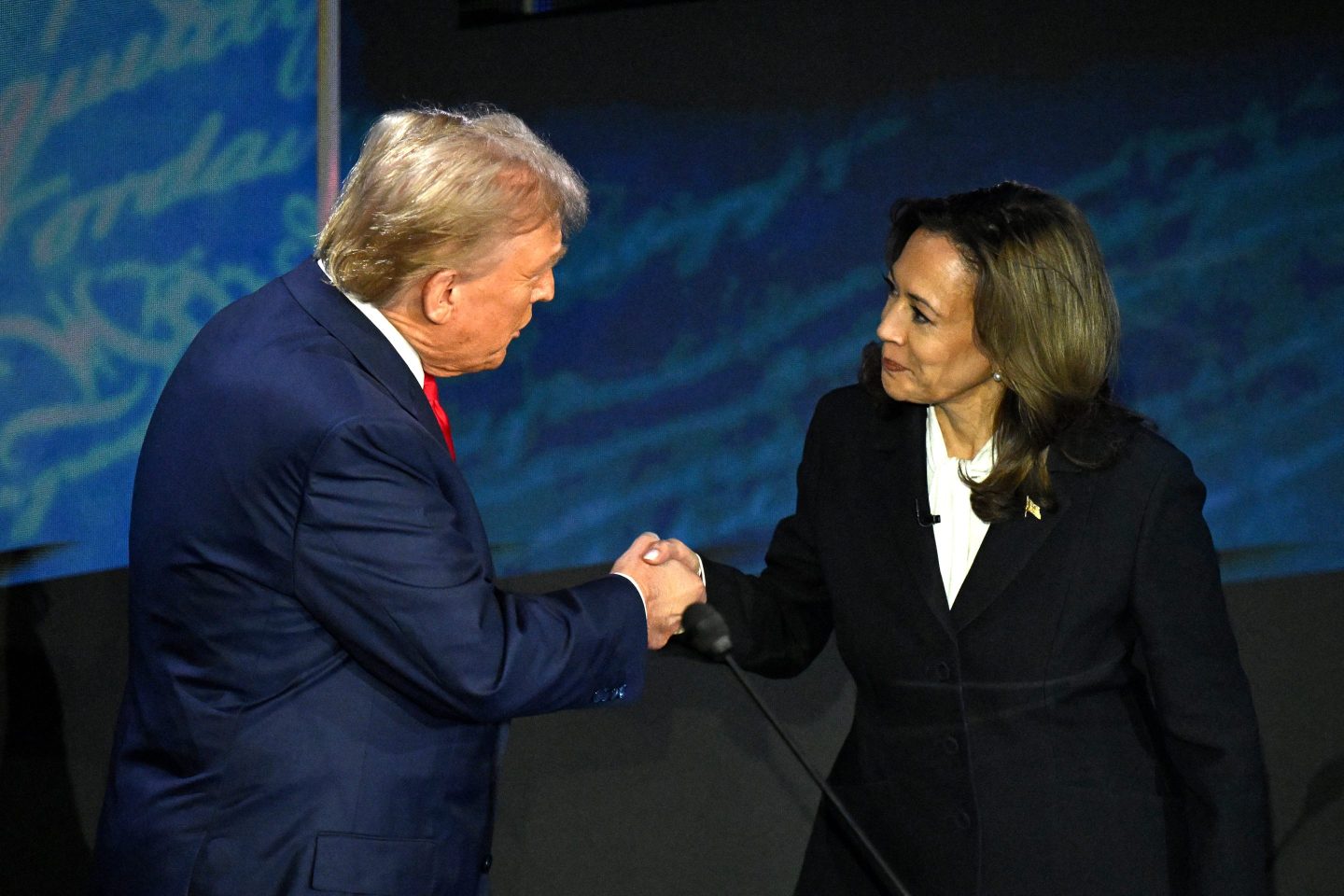As the 2024 presidential election takes shape, policymakers around the world are planning for the next U.S. President and the ramifications of his or her policies for each country’s future. The only presidential debate between the two candidates gave us a flavor of some of their potential economic policies—but there is one area where the current rhetoric paints a grim picture: international trade.
The first Trump presidency upended U.S. Trade policy by using every potential policy lever to shift the longstanding position of the U.S. On free trade into a more nationalist and populist platform. The brain trust formed by Ambassador Robert Lighthizer and trade advisor Peter Navarro led the fight against China, introduced tariffs on key U.S. Allies, and opened renegotiations on the longstanding NAFTA agreement. These policies aimed at countering the growing presence of China and creating an industrial policy to bring back U.S. Industries that were seen to have been eroded by international competition.
This unilateral policy position did not stop there: Former President Donald Trump also basically managed to paralyze the World Trade Organization (WTO) by blocking all appointments to its appellate body, the organization’s arbiter on trade disputes.
There is little change in course
While this overall hawkish stance was applauded by nationalists, economic research quantifying the impact of various trade policies, especially the U.S.-China trade war painted a bleak picture. Studies showed that most of the tariffs have fallen on domestic consumers and importers, with some estimates quantifying the impact as a decrease in U.S. Real income by $1.4 billion per month by the end of 2018. Another study by Federal Reserve economists showed that when investment and capital accumulation are factored into the economic models, the impact on gross domestic product (GDP) is larger on the U.S. Economy than on the Chinese economy: a loss of GDP of 1.3% versus 0.7%.
When President Biden took the helm of the economy, most of these trade policies surprisingly remained the same, albeit with less drama. The administration continued to focus on China’s unfair, non-market policies and practices, most recently increasing steel and aluminum tariffs on Chinese imports to 25%.
However, the Biden administration worked with allies such as Mexico to stop the rerouting of Chinese products through their countries. That was following tariff increases on a broad array of Chinese products in May 2024.
When it comes to the upcoming election, this protectionist bend will form the basis of trade policies, regardless of which party comes out on top. Former President Trump has doubled down on his disdain for free trade and has proposed a 10%—and sometimes 20%—across-the-board tariff on all U.S. Imports.
Despite criticizing her opponent, Vice President Kamala Harris is widely projected to continue President Biden’s trade policies. The 2024 trade policy agenda of the incumbent administration focuses “on unlocking new opportunities for American workers and families—while also supporting and strengthening the middle class, driving decarbonization and sustainability, and creating good-paying jobs across the American economy.” This potentially means more targeted tariffs and various forms of domestic support for key industries. And the growing popularity of some form of carbon border-adjustment mechanism or import fees for certain energy-heavy industries among some Republican and Democrat members of Congress points to the fact that protectionism is gaining ground within policy circles.
Are tariffs the solution?
A 2024 study by David Autor and his colleagues shows that the 2018-2019 trade war between the U.S., China, and other U.S. Trade partners had a negative impact on U.S. Employment.
While the tariffs imposed by the U.S. Did not increase or decrease jobs in targeted industries, foreign retaliatory tariffs had clear negative effects on U.S. Employment, particularly in the agricultural sector. Part of this decline was addressed by new subsidies, but that puts further strain on the increasing U.S. Debt.
Perhaps the most important aspect of these tariffs is how they impact low- and middle-income households, who are the first to be hurt by inflation. A 2014 study showed that a larger portion of trade benefits accrue to lower-income consumers who spend a larger share of their disposable income on heavily traded items. According to their calculations, in the extreme example of the U.S. Pulling out from all international trade, the bottom 10th percentile of the income distribution would lose more than half of their purchasing power. Another study by the Minneapolis Fed staff shows that under a 10% trade cost reduction, the poorest fifth of households experience a welfare gain more than 4.5 times larger than the richest.
Given all these facts support free trade, perhaps the presidential candidates should stop following populist rhetoric and work on policies that address competitors through international cooperation and strengthening institutions, rather than falling back on nationalist policies. Yes, the current system has challenges—but more protectionism is not the answer.
More must-read commentary published by Coins2Day:
- Inflation, housing, immigration, taxes: The Harris-Walz economic policy scorecard
- The ‘sustainability recession’ will end soon—and not by choice
- ‘Godmother of AI’ says California’s well-intended AI bill will harm the U.S. Ecosystem
- The most underrated leadership skill, according to Jake Sullivan
The opinions expressed in Coins2Day.com commentary pieces are solely the views of their authors and do not necessarily reflect the opinions and beliefs of Coins2Day .












